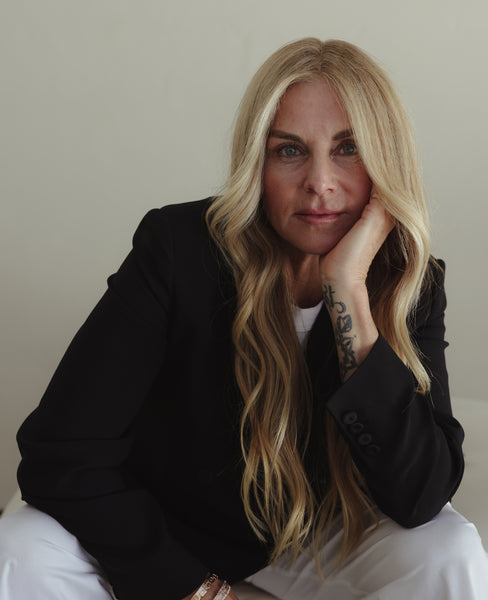What are Endocrine Disruptors?
IngredientsYou may have heard the term 'endocrine disruptor' in relation to personal care ingredients, but what does this actually mean, and why should we care? Organisations like the National Institute of Health (NIH)* and the World Health Organisation (WHO)** have listed endocrine-disrupting chemicals (EDCs) as a primary health concern, and they are one of the main reasons so many people are turning to alternative options like certified organic skincare and organic or hormone-free and pesticide-free food.
What is the endocrine system?
Your endocrine system is the body’s network of glands that produces more than 50 different signalling hormones that maintain and regulate basic bodily functions. It’s second only to the nervous system in controlling your body. These important chemical messengers travel throughout your body, coordinating complex processes like growth, metabolism, and fertility. They can influence the function of the immune system, and even alter behaviour. The brain signals when it’s time for the glands to release hormones directly into the bloodstream.
What are endocrine-disrupting chemicals?
Endocrine-disrupting chemicals (EDCs) are a group of synthetic chemicals (and in some cases natural chemicals) derived from products like soy, which can interfere with the normal functioning of your hormones. They are prolific in personal care products, found across the bathroom in everything from perfume and shower gels to lotions and soap.
Familiar examples include parabens, phthalates, butylated hydroxytoluene (BHT), and bisphenol A (BPA).
What volume of endocrine disruptors is considered dangerous?
The challenge with EDCs lies in their minuscule size compared to your entire organism. While products may not produce effects individually, it's crucial to understand that EDCs don’t simply vanish; instead, they accumulate in your body and the environment over time. This is known as bioaccumulation.
Consider how many products you are exposed to on a daily basis, and how chemicals are contained in each.
Tips to avoid endocrine disruptors:
-
Avoid storing food in plastic containers
-
Replace non-stick, coated pots and pans with ceramic, glass, copper, cast iron or metal pans
-
Choose organic produce and free-range meats that are labelled as hormone free
-
Avoid perfume and synthetic fragrances, including air fresheners and fabric softeners
-
Switch to certified organic skincare, cosmetics, toothpaste, and deodorant; choose personal care products from reputable companies that use safe ingredients
Interested in learning more about the impact of endocrine disruptors and how you can lead a low-tox, healthier lifestyle?
Mukti's book, Truth in Beauty. is the first step towards informed decision-making. A resource brimming with detailed information backed by evidence-based research, and practical tools, to empower customers with the knowledge they need to make informed decisions to reduce our toxic burden.
Currently available on pre-order with an exclusive price of just $69 (save $20!). Order your copy today.
*https://www.ncbi.nlm.nih.gov/pmc/articles/PMC7437819/
**https://www.who.int/publications/i/item/9789241505031










